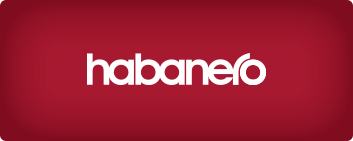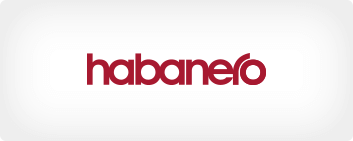We’re in a unique moment in time as people and organizations are navigating ongoing changes to our ways of working, initiated by the pandemic and what’s often referred to as the “great resignation.” How our clients and organizations think about employee experience, and as a result how they think about an employee value proposition, has evolved.
As Carolina Valencia, VP, Gartner said, “[S]hifts in the work environment have eroded the impact of the traditional EVP: Employees are people, not just workers; work is a subset of life, not separate from it; and value comes through feelings, not just features.”
Many organizations are struggling to hire and retain in key areas. They know they’re a great place to work (and even have the awards to back it up) that offers attractive pay and benefits, but they're not showing up in the market the way they want to.
What they need isn’t a new hiring strategy or even more competitive benefits. It’s something deeper. They need to focus on their employee value proposition – what employees truly value about their work experience – so they can communicate with authenticity and attract the right people.
Compete on what matters
An employee value proposition (EVP) is the promise an organization makes to its current and future employees. Organizations can often focus too heavily on the material aspects of a job, like compensation, or the benefits that employees might be focused on based on their personal circumstances, such as maternity leave. While these things are important, they are extrinsic factors that offer limited attractiveness to employees. Employers need to address intrinsic drivers too.
To unlock the real potential of an EVP, it needs to speak to the deeper meaning that people find in your organization.
For example, existing employees may care whether their employer:
- Appreciates and values them as a person and the skills they bring to their work
- Understands and promises what’s most important to them
When those needs are met, the employee is more likely to want to share their talents and stay with the company long term.
External or prospective employees might care whether:
- The company is a good fit. Will it recognize, reward and appreciate their talents? If so, how?
- The organization understands what’s most important to them. Will it lead to a happy and fulfilling career experience?
- Working there will fire them up. Will they be excited to go to work?
What makes an organization great today may be different from even just a few years ago. Most employees have always valued work-life balance to some degree, but now we’re finding that they’re asking for it more explicitly.
In 2023, we partnered with BC Hydro to help them research and validate what makes their organization a great place to work. Going into the project, they held many assumptions about what motivates employees to choose BC Hydro as an employer of choice. That’s why it was helpful for them to engage an outside partner who could provide an objective lens.
Our research dispelled their long-held beliefs that employees cared most about the pension and other benefits. What the research showed was employees cared deeply about work-life balance, feeling cared for or valued as a human and doing meaningful work.
This trend of aligning meaning with work is likely to hold as Gen Z’s presence in the workplace grows. By 2030, they will make up over 30% of the global workforce. Research and insights from the Work-Learn Institute show that what this generation values most is helping others, enjoying life, and exploring curiosities. These are the criteria they’re using to inform how they seek employers and jobs.
Understand what’s uniquely you
Some EVPs are little more than marketing messages based on long-held beliefs and engagement scores. To unearth the unique magic of your own organization, you’ll need to delve deeper and get into the hearts and minds of your employees. You can do this with a combination of quantitative and qualitative research techniques, such as surveys, workshops and interviews, that centre the employee experience.
When designed thoughtfully, surveys can provide both breadth and depth of insight. They can help you reach a large number of people across the organization to understand the employee experience challenges people face. At the same time, they can validate what you learn from speaking to employees and act as a check against any unintentional biases you might have.
However, surveys alone can’t deliver the rich insight organizations need to craft a truly meaningful EVP. For that, you need empathetic research that unearths the deeply felt reasons people love to work for your organization. Successful research of this kind requires specialized skills and practised experience. Habanero researchers are experts in fostering psychological safety and trust, facilitating sometimes difficult or charged discussions with empathy and tact, and objectively analyzing and synthesizing findings into patterns and themes.
When Bird Construction merged with Stuart Olson, they knew their journey to cultural alignment and an authentic employee value proposition needed to start with employees’ lived experiences. They needed an objective partner, who could help them take a step back from their own culture to see it with fresh eyes. We conducted interviews and workshops where employees could safely share their highs and lows, their hopes and concerns, and current wins as well as opportunities for improvement.
Hearing employees describe their experiences in their words was powerful. The personal stories lent legitimacy to the data they obtained through other research and helped everyone involved truly understand what employees were experiencing. They used these findings to craft, among other things, an EVP to attract new talent who feel aligned with the culture and values of their organization.
In addition to speaking to current employees, it's also valuable to understand the perspectives of potential candidates. You can ask potential employees what they’re looking for in an employer and what they consider to be red flags to understand both what attracts and what deters candidates. Comparing a candidate’s expectations with what your current employees are experiencing reveals whether or not your employee experience is delivering on your promises. Listening to the lived experiences of new hires is a way to understand whether your organization is meeting the expectations that were set during the hiring process.
Whether we’re speaking to employees or candidates, our researchers always pay careful attention to patterns in the language they use. The weight that words carry and how they’re interpreted can vary greatly, so it’s important to understand what words resonate with people and why. It’s this insight that helps us create an EVP that’s authentic to each organization.
Put your EVP to work
Taking this research-first approach will help you craft an EVP that feels authentic and inspiring to employees and potential hires. It also instills a sense of confidence that ensures it can be put to work right away, because people trust the research findings. After BC Hydro finalized their EVP, their CEO spontaneously used the ideas in a presentation the following week. When the ideas are true and motivating, they’re more likely to take off.
The true power of the EVP lies in how you use it. Organizations find success with their EVP when they see it as a capability, not just an artefact. Bird’s new EVP not only gave them the language to talk about their culture in a unified way, but also a framework for attracting employees who are excited to start or grow their careers there. For BC Hydro, the EVP was instrumental in helping them revise their recruitment, hiring and onboarding processes to ensure they’re connecting with the right people, including those from their target audiences.
Every organization has the potential to compete in the market and attract people who will thrive there as employees. Your EVP is the beacon that helps you find the right people.




.jpeg?bc=white&la=en&mw=416&modified=20260107170003&hash=93EF4ACED0A19DFA0EACD7B656552F9659B3AFD2)

